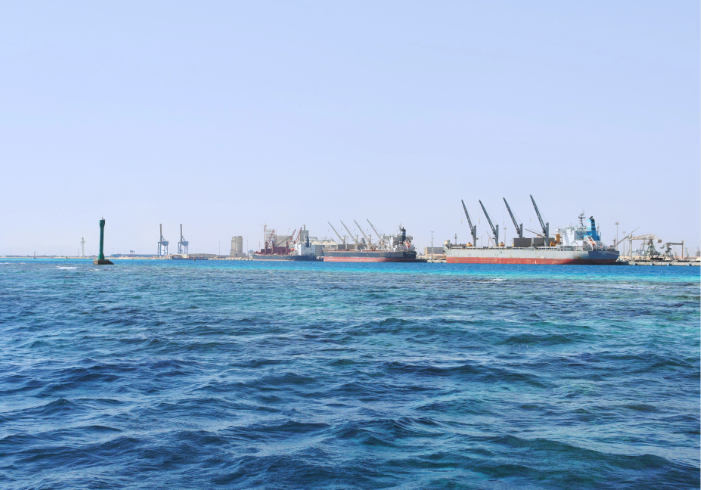BB Energy has won a last-minute court judgment to prevent the government of South Sudan from selling an oil cargo worth at least US$20mn, due to be shipped next week, as it seeks repayment of a US$100mn loan it granted to one of the world’s poorest countries.
London High Court judge Christopher Butcher said in a November 18 hearing that he would grant an urgent injunction preventing the government of South Sudan from delivering or otherwise dealing with a cargo of 600,000 barrels of crude oil due to be lifted from Port Sudan on November 27, pending a further hearing.
BB Energy DMCC, a UAE unit of the London-headquartered commodity trader, claimed it had been promised the oil under a pre-payment deal.
The legal manoeuvre highlights a new tactic in lenders’ efforts to recover around US$2.3bn South Sudan owes in oil-backed loans, and underlines the riskiness of resource-backed debt extended by commodity traders to developing nations.
The order will specifically prevent the cargo from being transferred to Dubai trader EuroAmerican Energy or Singapore’s Cathay Petroleum International Pte Ltd, both of whom have said they intend to buy the oil, the court heard. Neither trader has made a pre-payment for the goods, a barrister presenting BB Energy said.
BB Energy paid US$100mn to South Sudan in February this year which the government immediately used to pay Malaysian oil giant Petronas for its shares in two entities, according to a verbal judgment given by Justice Butcher.
The money was used to “fund the settlement of a long-standing dispute” between the South Sudanese authorities and Petronas, which ended its oil producing activity in the country in August last year.
South Sudan had agreed to repay BB Energy’s loan by delivering five cargoes of Dar or Nile blend crude oil over the course of this year. But the government has failed to deliver any of the expected shipments or make cash payments, according to BB Energy’s evidence.
“That is not because there have been no cargoes,” Justice Butcher said. “There indeed have been cargoes, but instead of delivering to the claimant, [the Republic of South Sudan] has instead sold them to third parties.”
The lack of deliveries means that BB Energy is currently owed US$61.5mn under its pre-payment deal with the country, with the amount set to go higher if the remaining cargoes are not handed over.
Ahead of expected deliveries earlier in April and May, authorities in the cash-strapped nation demanded BB Energy make further payments of US$25mn within two days in return for the cargoes, the judge said, citing the trader’s evidence. When no payment was made, the oil was delivered to other buyers.
Neither South Sudan nor Nile Petroleum, a state-owned oil company that the judge said guaranteed the pre-payment arrangement, was represented in court nor responded to legal letters from BB Energy.
Justice Butcher said he was persuaded to issue the injunction instead of awarding BB Energy damages because “there are good grounds for thinking that neither [South Sudan] nor Nile Pet[roleum] has the funds to meet any judgment for the value of the November 27 cargo, which is likely to be in excess of US$20mn”.
He noted Transparency International’s ranking of South Sudan as the world’s most corrupt country as one reason why an attempt to enforce an English legal judgment in the nation’s courts would be a “convoluted and time-consuming” process.
The order set to be issued by the court would instead be used to prevent the oil from being removed from port facilities located in the Republic of Sudan. South Sudan exports most of its output via pipeline through its northern neighbour.
The order will also include a provision binding BB Energy to indemnify South Sudan and Cathay International Petroleum with a bank guarantee of up to US$25mn if either party incurs costs or damages from the injunction, such as due to extra storage and handling costs.
The London hearing comes after South Sudan’s petroleum ministry confirmed last week it had asked the China National Petroleum Corporation and Indian oil company ONGC Videsh for loans worth US$1.5bn and US$1bn, respectively, to be repaid through oil deliveries.
BB Energy declined to comment. The South Sudanese finance ministry did not immediately respond to a request for comment.
South Sudan’s debt woes
South Sudan has relied heavily on pre-payments from oil traders and banks to fund its budget, but many such loans have fallen into arrears.
The country’s outstanding oil-backed debt stood at nearly US$2.3bn as of July, according to a previous GTR analysis of court records, government documents and UN estimates. Lenders include the African Export-Import Bank (Afreximbank), Qatar’s QNB and UAE-based oil trader Nasdec General Trading.
Earlier this year, Afreximbank was awarded US$657mn from South Sudan by a London court, but a bank official later told a South Sudanese radio station that the two sides had come to an “understanding” over the debt.
Oil trader Vitol also filed a claim against South Sudan earlier this year, but later said the dispute had been “resolved”.
President of the African Development Bank (AfDB) Group, Akinwumi Adesina, said in 2023 that “natural resource-backed loans are non-transparent, expensive and make debt resolution difficult”, and if they continue, “will be a disaster for Africa”.
International Monetary Fund managing director Kristalina Georgieva said the loans can be “predatory and enslaving”, according to an AfDB statement at the time.
A September report by a UN human rights commission said South Sudan was missing out on badly needed oil revenue by offering discounted prices to buyers, partly to account for the risk of non-payment. The report estimated the government lost US$390mn in potential revenue between 2022 and 2024 alone.
The UN research also said buyers face “increasing problems in securing trade financing and insurance for purchases of oil cargoes from South Sudan”, leaving only firms able to operate without external financing or willing to offer credit to the country.







